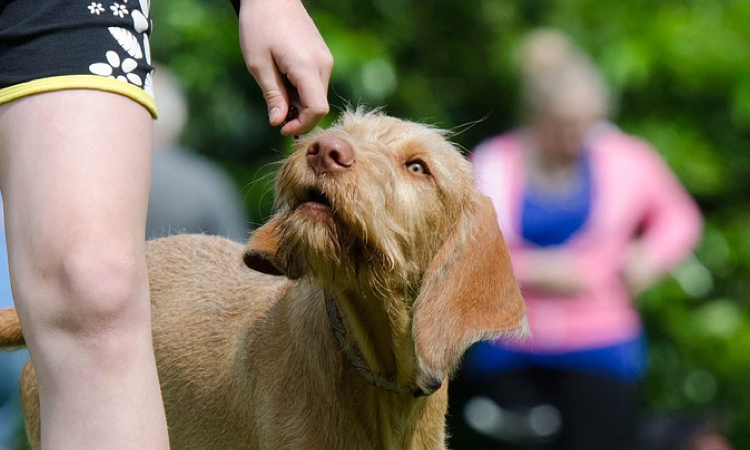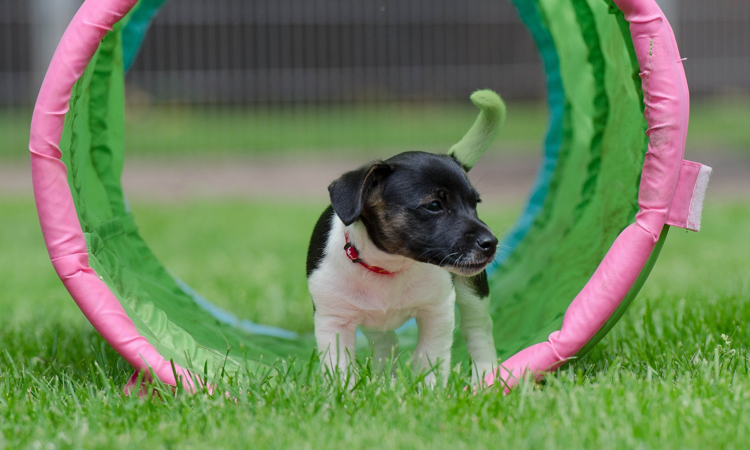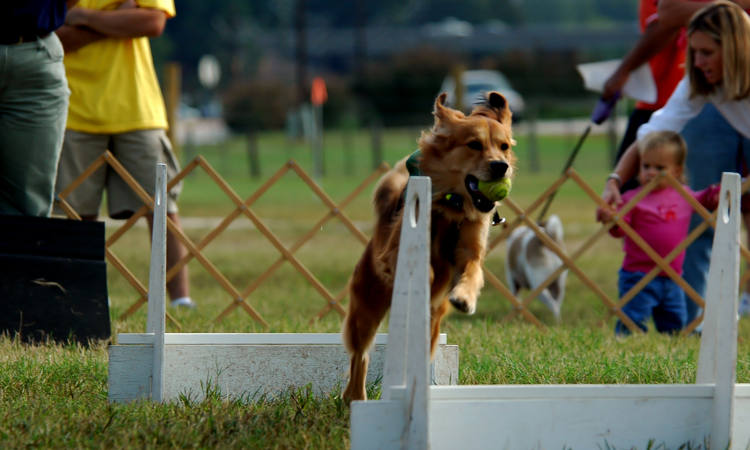Dog training classes are great fun and a good way to bond with your dog while learning from some of the best in the business. So what do you need to know before signing up? The last thing you want to do is waste money, or turn up to an Alsatian bonding session with your Poodle. In this guide we’ll run you through (or walk very nicely) the key things you need to know when choosing an obedience class for your dog.
What are the benefits of attending dog training classes?

Dog training classes aren’t just for puppies – learning and refining new skills is for dogs of all ages and training classes can help you and your dog overcome some of the challenges of various development stages in the life of your pooch. Here are some of the benefits of training classes for dogs at different stages.
For puppies
- Helps your puppy to socialise with other dogs.
- Ensures your puppy learns basic doggy manners such as how to sit, paw, lay and stay.
- Allows you to ask questions and check in with a professional about your puppy’s behaviour.
- Helps you and your puppy to make lots of friends with other dogs and owners.
For adult dogs
- Helps to keep your dog’s mind active and allows them to continue to learn new things.
- Can improve obedience, self-control and training areas such as recall.
- Allows you to work on any specific behavioural issues.
- Increases the bond between you and your dog.
For rescue dogs or those with behavioural problems
Different kinds of dog training classes

Most dog training classes differ slightly depending on the trainer, location and who their target audience is. Here are some good-to-know tips about each type of class.
Puppy training classes and puppy socialisation
These classes are aimed at puppies who have had their first injections and who are around one year of age; although age limits will differ by class. Puppies need socialisation to help them become comfortable with other dogs, people and situations during their early years and puppy classes are a great place to start.
These training classes will also help you to begin to master basic obedience which will give your puppy a great start in life.
Puppy classes usually restrict dogs’ attendance based on age, to allow your puppy to mix with other dogs at the same developmental stage. This is great for those first forays into biting, playing, climbing on each other and helps them learn to be friends with dogs of all shapes and sizes.
Obedience classes and behavioural training
General obedience classes or behavioural training will help advance any basic commands your dog has already learned. This can be to correct bad behaviour, or as a way of improving general self control.
These classes are great for dogs and owners who want to continue their education or for any dogs who need to build up the level of obedience needed for doggy sports such as agility or flyball.
Agility classes, flyball and scent training classes

This type of class are a bit more specialised, depending on what skill the owner and dog are trying to learn. All of these classes assume that the dogs attending already have basic obedience and are comfortable being under their owner’s command. If this isn’t the case, the trainer may recommend attending obedience lessons before moving onto an agility or flyball beginner’s class.
Agility classes present a series of fun and active challenges to an eager dog. They’re encouraged to race across a series obstacles such as jumps, hoops and tunnels. In professional agility, the handler is not allowed to touch or reward the dog during the competition, so this takes time and trust to build.
Flyball is a team sport where dogs compete in a competition as part of a team of four dogs. It’s similar to a relay race or tag team; one dog clears hurdles carrying a ball in their mouth, before the next dog can begin. It’s high octane and can be great fun for all of the dogs involved.
7 things to know before booking a dog training class
- Before booking any type of dog training class it’s important to read through the website or other literature and get to grips with what the class is all about.
- See if you can try a class before you commit to a block of sessions to ensure you like the style and atmosphere.
- Ask the trainer what type of reinforcement the class will use. Most dog welfare groups recommend positive reinforcement but there are still trainers who can use negative reinforcement as well as devices such as choke leads which some dog owners won’t feel comfortable with.
- If you can, watch a class before attending one with your dog.
- If you’re keen to commit to doggy sports or advanced obedience classes you might want to find a school that offers multiple classes. This ensures you stick to the same style of teaching throughout and will make for a comforting environment for your pup.
- Good obedience schools won’t ever force you to do something you aren’t comfortable with. Whether that’s telling your dog off or forcing them to do something they don’t want to do or not being in control of the class and its other dogs.
- Be considerate and aware of the other dogs in your class. There may be dogs from all different walks of life, some of whom may be more nervous or aggressive and they might not all want to make friends with you or your dog. Similarly, if your dog is nervous or aggressive you will need to take extra precaution to ensure the safety of your classmates.
While dog training classes teach obedience and tricks, there are a wealth of other benefits from a social perspective. With the right class your dog will love impressing you with new things and it’s likely that you’ll have fun too.
What tips have you got for dog or puppy classes? Share you stories with the DogBuddy community on Facebook, Twitter or in the comments section below.